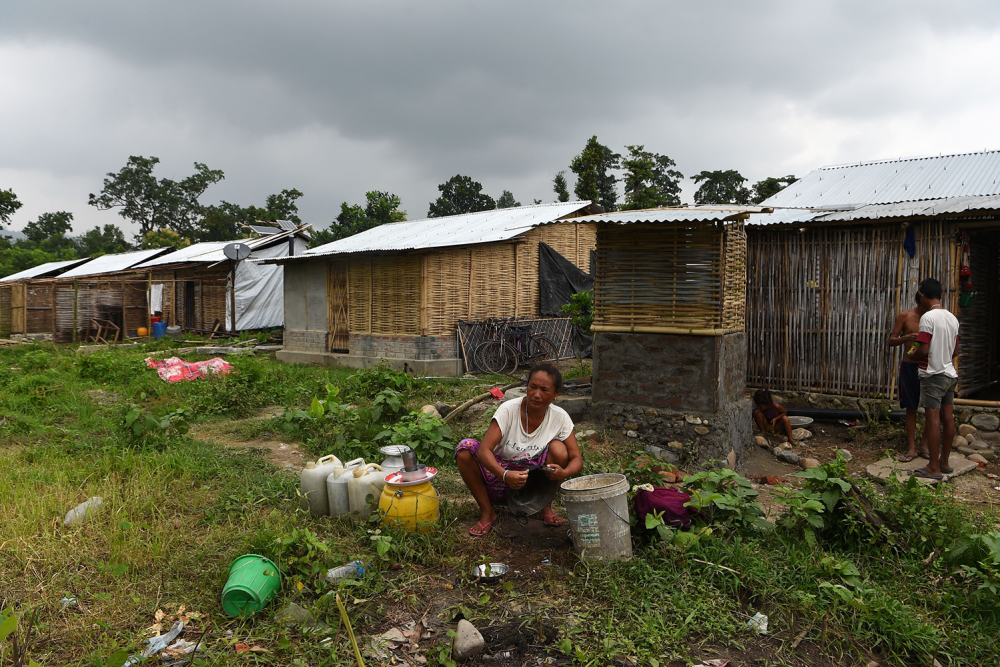A point which is often underplayed by commentators and analysts is a discomfort with China’s growing economic clout. As in several other countries, there is a belief that China’s economic links with Nepal being of an exploitative nature and are only benefitting Beijing.
China’s big ticket investments in Nepal and the BRI Project
Some of the big ticket projects in which China has invested in Nepal are the Kathmandu-Pokhara highway and the Pokhara International Airport. Both countries are also holding deliberations over a rail service connecting Kathmandu-Kerung (in October 2019 during the visit of Chinese President Xi Jinping, both countries had signed MoUs for carrying out detailed project reports of Kathmandu- Pokhara-Lumbini rail connectivity as well).
Like in other countries, Nepal which signed up for the Belt and Road Initiative (BRI) in 2017 has begun to see the pitfalls of excessive economic dependence upon China. In reaction to the inclusion of the Pokhara International Airport in the BRI, Nepal Foreign Minister while speaking in the House of Representatives said: “The project implementation plan of the BRI is at a stage of discussion between Nepal and China. Not a single project in Nepal under the BRI has been executed. The project implementation plan of the BRI is still under consideration.”
Nepal has also categorically told China, that it would prefer grants to loans.
Apart from Nepal signing up for the BRI and Beijing’s investment in infrastructure and other sectors, influence in Nepal is also evident from the number of Chinese shops, restaurants and hotels in Kathmandu as well as large number of Chinese tourists. As a result, there are numerous signboards in Mandarin.
During his recent South Asia trip, Ali Baba CEO Jack Ma visited Nepal (his trip was referred to as a ‘business trip”)
Differences between China and Nepal are not restricted to the BRI, but even other economic linkages – especially in the sphere of tourism. Like in several other developing countries, in Asia, there is a complaint that Chinese tourists stay in Chinese hotels, purchase from Chinese shops and eat at Chinese restaurants. Nepal had also banned two Chinese apps WeChat Pay and Alipay, in 2019, because Chinese tourists were paying Chinese businesses operating in Nepal through these apps – Nepal’s economy was thus losing out. In June 2023, Chinese digital payment service WeChat Pay and NMB Bank Nepal partnered to make the mobile payment system available in Nepal.
Aspirations of the youth
What is often forgotten in discussions on Nepal is the changes – economic and social, which are taking place and how the new generation of the South Asian nation is looking for better opportunities in different parts of the world and not restricting their options. A strong reiteration of this is the increasing popularity of Japan as an education destination. Japan has provided assistance to Nepal, including humanitarian assistance, apart from its investment in important infrastructure projects — B.P. Highway, Koteshwor-Suryabinayak Road, Maharajgunj Hospital (TU Teaching Hospital), Kanti Hospital, and Kulekhani Reservoir.
In the aftermath of the 2015 earthquake as well as Covid-19, the East Asian nation provided important assistance to Nepal. Of late, Japan has been providing scholarships to students, government officials and has thus emerged as a favoured destination.
Nepal’s youth also has a different approach vis-à-vis India. While many not be comfortable with a relation driven only by nostalgia, yet ties with India are not viewed from the baggage of the past. A large number of Nepali students have been going to India, for decades, and over the past few years not just New Delhi and Mumbai but Bengaluru has emerged as a sought after destination ( several Nepalis work in Indian tech companies). There is also talk of increasing air connectivity between both countries which is not restricted to a few cities. There is space for India’s private sector to play a more important role in the relationship, not just via investments, but also tapping talent from the South Asian nation. India can also play an important role in helping Nepal in developing a strong start-up eco system.
It is important not to view Nepal’s ties with the outside world merely from a geopolitical dimension – especially the lens of India-China competition. The aspirations and world view of young Nepalis and the changes taking place in the economic landscape of the country need to be understood.
Source: TGP


